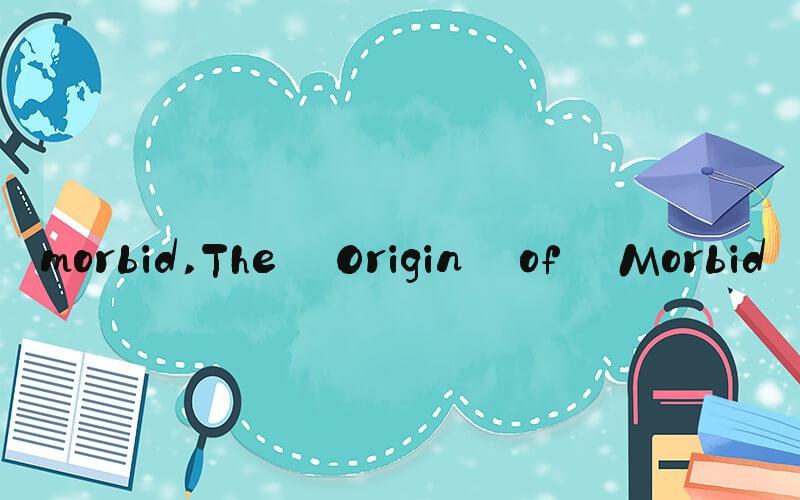 Morbid: Exploring the Dark Side of Human Nature
Morbid: Exploring the Dark Side of Human NatureHuman beings have a fascination with the macabre. Whether it’s Gothic literature, horror movies or even true crime documentaries, we seem to be drawn to the dark side of life. The term morbid is often used to describe this fascination, but what does it really mean? In this article, we’ll explore the origins of the word and delve into the psychology behind our interest in the morbid.
The Origin of MorbidAccording to the Merriam-Webster dictionary, the word morbid comes from the Latin word morbidus, which means “diseased” or “unhealthy”. The first known use of the word in English was in the 1650s, where it was used to describe a person who was sickly or prone to disease. Over time, the meaning of the word shifted to encompass a broader range of negative or disturbing topics, such as death, decay, and horror.
The Psychology of the MorbidWhy are we so fascinated by the morbid? Some psychologists believe that it’s because we have an innate fear of death and the unknown. By exploring the dark side of life, we are able to confront our fears and gain a sense of control over them. Others believe that our interest in the morbid is linked to our desire for arousal and excitement. In other words, we enjoy feeling scared or shocked because it gives us a rush of adrenaline.
There are also cultural and historical factors at play. Throughout history, humans have been surrounded by death and suffering, whether it’s war, disease, or natural disasters. In many cultures, death was (and still is) seen as a natural part of life, and people would often go to great lengths to prepare themselves for the afterlife. In more recent times, the rise of Gothic literature and horror movies has given people an outlet for their fascination with the morbid.
The Dark Side of the MorbidWhile our interest in the morbid can be a healthy way to confront our fears and explore the darker aspects of human nature, it can also have a darker side. Some people become obsessed with death or violence, and may even engage in dangerous or illegal behaviors as a result. Others may use their fascination with the morbid to justify harmful or abusive behavior towards others, such as committing acts of violence in the name of a particular ideology or belief.
It’s important to remember that the morbid is just one aspect of the human experience. There is also beauty, joy, and wonder in the world, and we shouldn’t let our fascination with the darker side of life detract from that.
In ConclusionMorbid has become a catch-all term for our fascination with death, horror, and other negative topics. While this interest can have its roots in our fear of the unknown or desire for excitement, it’s important to be mindful of the darker implications that can come with it. By embracing all aspects of the human experience and finding a balance between the light and dark, we can live a more fulfilling and meaningful life.
